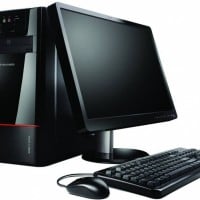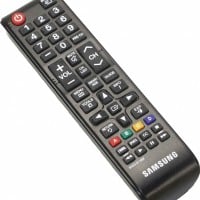Top 10 Everyday Things that are Extremely Unsanitary
Throughout the day we touch a lot of surfaces yet sometimes fail to realize that those things can be extremely dirty and have tons of dirt, grime, and bacteria. These are various items ranked based on how much we use these items and how dirty they are. These are also items that we either own or we may encounter or use throughout the course of the day and not really pay attention to how dirty the surfaces really are. In some cases the items we constantly use are even dirtier than a toilet seat for example. So just think about trying to sanitize things more often or wash your hands to stay clean as possible.
This should not come as a surprise to anyone. We take our cell phones everywhere and when I say that I mean EVERYWHERE. Even into the bathroom. As a result, it could be up to 10 times dirtier than a public toilet seat. In fact, it could have E. coli on it. Which if you are unfamiliar, it's a bacteria that can give you diarrhea and stomach cramps. It can live for hours on a warm surface like your phone. And how many hours do we spend on our phones per day? About 3-5 hours on average so yeah maybe think about that next time you get on your phone in the bathroom.

Think about it. You grab money all the time with your hands and so does everyone else. Researchers found that most dollar bills are covered in 3,000 types of bacteria everything from the germs that cause acne to microbes from people who lick their fingers when they count out bills. Some countries are printing money on plastic, but the U.S. has yet to take that step. Something else to think about is that Dollar bills tend to circulate for about 6.6 years, according to the Federal Reserve, so there's plenty of opportunity to pick up germs. A 2002 study from Wright-Patterson Air Force Base in Ohio tested 68 bills and found that 94% were contaminated with bacteria. Also according to a study There are traces of cocaine on as many as 80% and 90% of paper bills. A 2001 study detected heroin on 70%, methamphetamine on 30% and PCP on 20% of cash, so maybe you should use a debit card or wash your hands when handling cash.

We all try to keep our kitchens and bathrooms clean. But how clean are our computer keyboards? Most of us spend many hours every week typing at a computer, but rarely think to clean it. How dirty can our desks get? Well, you probably eat lunch over it at work. Little kids log on and wipe their runny noses while they play their favorite game. The cat hops up for a nap after they leave the litter box. No surprise it's covered in germs. In fact, researchers at the University of Arizona found that various computer keyboards across the US can have up to 400 times as much bacteria as a toilet seat. That's pretty disturbing to think about. To clean things up, shut down your computer. Give your keyboard a few good shakes to get rid of loose crumbs. Use rubbing alcohol on a cotton ball or pad to clean around each key.

You know those wipes most groceries have sitting out by the carts but rarely actually use? Well, you should start using them: Researchers say almost all supermarket carts have E. coli because of the frequent food contamination. Plus if you think about how many people touch a shopping cart over the course of a few days it quickly becomes unsettling.
In 2020, most restaurants replaced their menus with disposable versions and for good reason. Considering how many people touch those throughout a typical day of business and the germs can easily multiply. Plus how often do they really wash those things? Sure they might occasionally use a cloth or something, but they rarely get a thorough cleaning. Some places went with a virtual menu with a QR code which may honestly be a modern solution to this problem some menus average 185,000 bacteria and are the dirtiest items in the restaurant.

When was the last time you cleaned your TV remote? If you can't remember, you should probably clean it. Think about how often you and everyone else touches it in your house, and then it can also get stuck in the couch sometimes which doesn't help matters any. Maybe you should wear a glove next time you start channel surfing or you could just watch Netflix on a computer or tablet. Oh and if you think that the one at your house is bad, don't even get me started on the ones in hotels. According to a 2012 study by the University of Houston with surfaces in hotels Remotes are among the most heavily contaminated with bacteria.
We all love sleeping in our beds at night, but you need to make sure to clean your sheets often. According to Business Insider, you shed about 15 million skin cells each night, but they don't just pile up in your sheets because dust mites will eat them up. And the longer you wait between washes, the more food these critters will have and the more they'll multiply. So if you don't wash your sheets, you'll be sleeping with potentially hundreds of thousands of arachnids every night. Oh, but it gets even worse than that. Dust mites and their feces produce proteins that cause red and itchy eyes, runny noses, and other cold-like symptoms in people who are allergic, and dust mites are not the only allergen in a dirty bed. If you never wash your pillow sheets, a community of fungi can also build up there. One study found that a typical pillow has as many as 16 different species of fungus and potentially millions of fungal spores. Some which potentially can infect your lungs and other organs.
This is an odd item to include. If you can't remember the last time you washed the cup that holds your toothbrush, then you're not washing it enough, and if you think it's not that important, I'm here to tell you that you might want to wash it right now because according to a study from independent health organization NSF International found that toothbrush holders contain harmful bacteria, including Coliform (Salmonella and E. coli) and mold. Most germs and bacteria will get stuck on your toothbrush and drip into the cup. Make sure you put it in the dishwasher every once in a while. Also, make sure you replace your toothbrush fairly often as well.
I know this is a shocker, but maybe not. One study found that some nasty viruses, including rotavirus, which causes severe stomach troubles, made it through the spin cycle and the dryer. Washing machines are almost always wet which creates a perfect breeding ground for bacteria, Reader's Digest reported. If you use a communal washing machine in your apartment building, it's much more difficult to control how clean the machine is. In that scenario, consider adding vinegar to your load of laundry. If you have your own washer, it's recommended that you clean it with bleach at least once a month. Raise your hand if you actually do that... exactly. Also not to mention, your laundry baskets are also pretty dirty as well.
You know those salt and pepper shakers and ketchup bottles at restaurants? Almost everyone uses them but how often are they really cleaned? At best they're getting cleaned when the busboy cleans the table but even then they are probably just getting occasionally wiped with a disinfectant wipe. And restaurants know they aren't getting cleaned enough that's why when Covid hit they replaced the bottles with little packets for each person individually. That's why we're in a bit of a ketchup packet shortage at the moment because they were in much higher demand so better enjoy those packets while they last
The problem comes when the cutting board becomes scarred (which happens much more quickly than with wood boards). Knife scars on plastic boards are not clean incisions. The cuts fracture, creating a microscopic web of fissures below the surface which provide a safe harbor for bacteria.